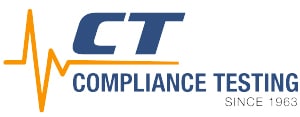Need help complying with EMC standards? Schedule a free consultation with our team to discuss EMC testing and achieving compliance for your product, or call us on 866-540-5287 to talk to our compliance experts right away.
If you’re a manufacturer of electronic devices, you’re undoubtedly familiar with electromagnetic compatibility, or EMC.
EMC refers to the ability of electrical and electronic devices to function as intended in a normal environment, without emitting harmful levels of electromagnetic interference (EMI) that disrupts other devices.
Put simply, EMC ensures that devices can coexist without the safety, performance or accuracy issues that may develop as a result of radiofrequency (RF) emissions.
EMC compliance is one of the most important aspects of bringing your device to market. Many of the world’s largest markets, including the United States, require electronic devices to comply with regulations regarding electromagnetic compatibility.
As specialists in EMC compliance testing, we can help you test your device and comply with all relevant EMC regulations, including FCC, IEC, EN and CISPR standards.
To request a quote, contact us online or call us at 866-540-5287. You can also learn more about EMC compliance, including common EMC standards, testing methods for EMC compliance, and achieving compliance for your device, below.
Why is EMC Compliance Important?
Electromagnetic compliance is critical for device manufacturers, and for several reasons. EMC ensures that your device is reliable and safe when it’s used with other electronic devices, such as consumer electronics or commercial/industrial equipment.
In today’s technology-driven world, it’s rare for a device to operate without other electronics in the vicinity. EMC compliance prevents interference that can potentially lead to malfunctioning, equipment damage, or even equipment failure.
This helps to ensure that critical devices such as medical equipment, data storage, and others, can function properly without any risk of false readings or data loss.
Common EMC Standards
All major markets have EMC standards, many of which are required to bring your product to the market. These standards ensure that any devices sold in certain regions adhere to standardized requirements for electromagnetic compatibility.
Common EMC standards include:
-
- FCC Part 15. This US standard for radiofrequency devices sets performance standards for emissions and immunity to interference from other devices. The FCC provides clear standards for both intentional and unintentional radiating devices.
- IEC 61000 Series. Published by the International Electrotechnical Commission, this is a series of standards that govern electromagnetic compatibility for a range of electrical and electronic devices.
- EN 55032 and EN 55035. These European Norm standards are used throughout the EU and European Economic Area (EEA) to regulate electromagnetic compatibility for media devices and other electronics.
- CISPR Standards. Published by the Comité International Spécial des Perturbations Radioélectriques (part of the IEC), these are international standards focusing on the electromagnetic emissions of electronic devices.
Other EMC standards, including harmonized standards used in certain countries and regions, may also apply to your device.
EMC Compliance Testing
EMC compliance testing involves a series of testing procedures to assess the electromagnetic compatibility of your device. Testing usually includes two primary components:
- Emissions testing. This tests whether the electromagnetic emissions from your device fall within the safe limits set by the relevant standards. Emissions testing ensures that a device doesn’t emit excessive amounts of energy that can cause interference.
- Immunity testing. This tests your device’s ability to function correctly when it’s exposed to electromagnetic disturbances from an external source. Immunity testing ensures that a device can continue operating normally in an environment with other devices.
These EMC tests are conducted by an accredited, specialized EMC testing laboratory. Testing involves the use of special equipment to both measure your device’s emissions and simulate a test environment with significant electromagnetic disturbances.
Types of EMC Tests
Common EMC tests include:
- Radiated emissions testing. This test measures electromagnetic fields that are emitted from your device.
- Conducted emissions testing. This test measures interference transmitted from your device through power lines or signal lines.
- Electrostatic discharge (ESD) immunity testing. This test assesses your device’s level of tolerance to electrostatic discharge events.
- Radiated immunity testing. This test evaluates your device’s resilience to external electromagnetic fields.
The specific EMC tests used for your device, and the performance criteria that your device will need to meet, could vary based on the EMC standards and directives that apply to your target markets.
Choosing an EMC Testing Partner
A key part of the EMC compliance process is choosing a test partner. When comparing testing labs, look for accredited laboratories with experience in your specific product category and the ability to provide guidance throughout the testing and compliance process.
Talk to Us About EMC Compliance for Your Device
Complying with EMC standards and regulations is a critical part of bringing your product onto the market. As specialists in EMC testing and compliance, we can help you test your product, achieve compliance and enter the market in the United States, Europe, and other regions.
To request a free quote for your device, or to ask a question about any aspect of the product testing and compliance process, contact us online or call us at 866-540-5287.



